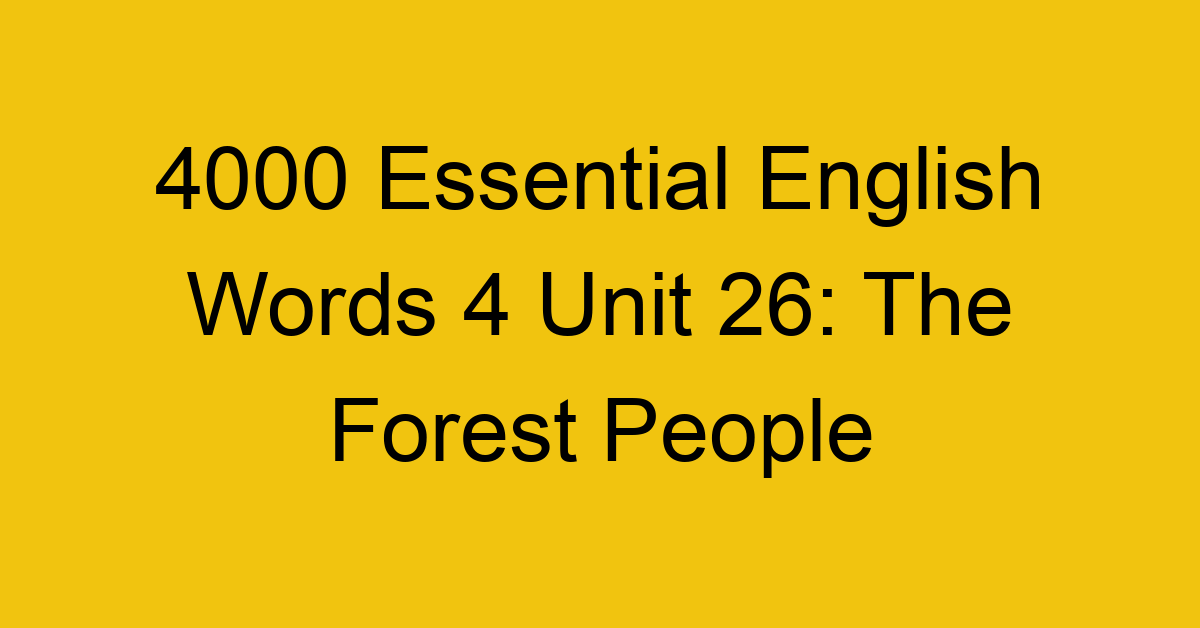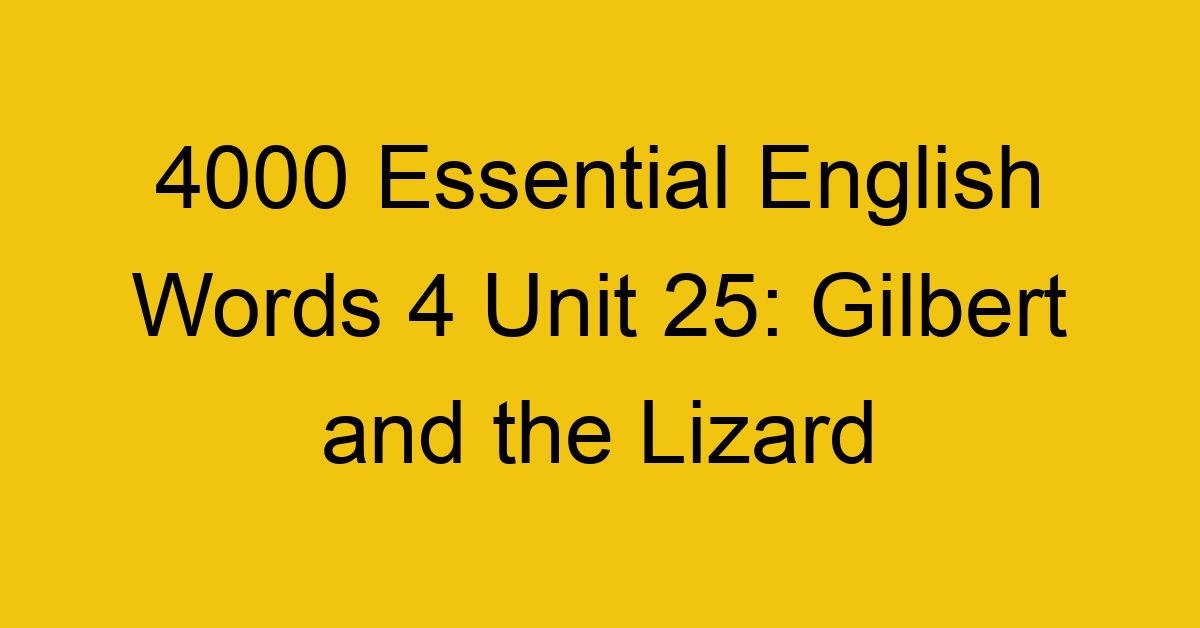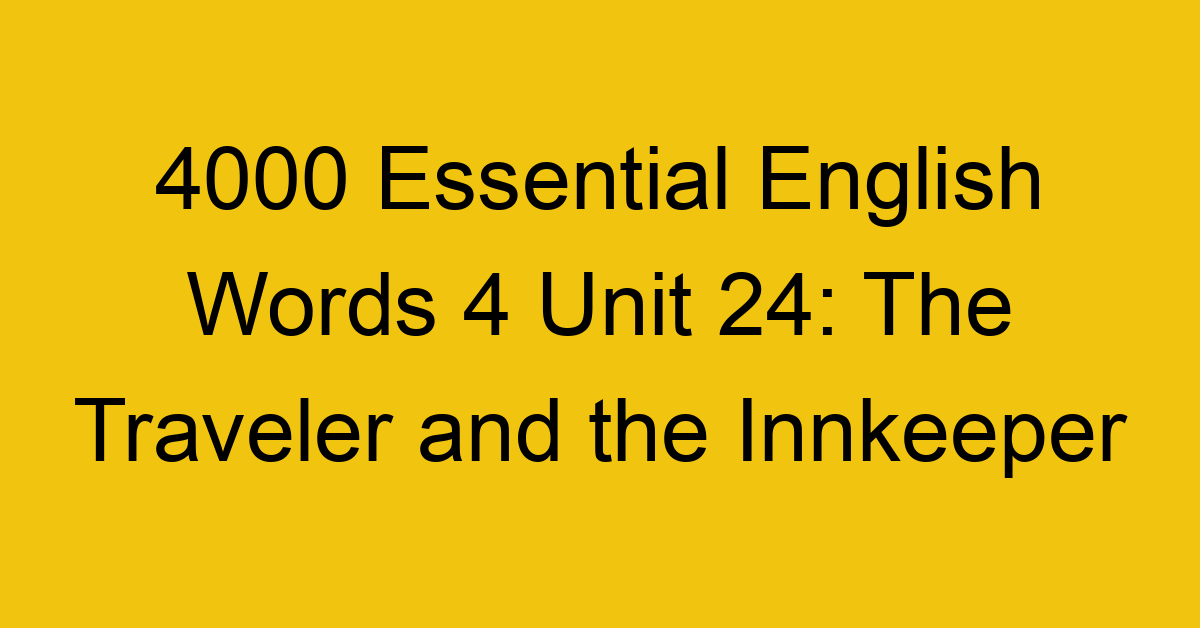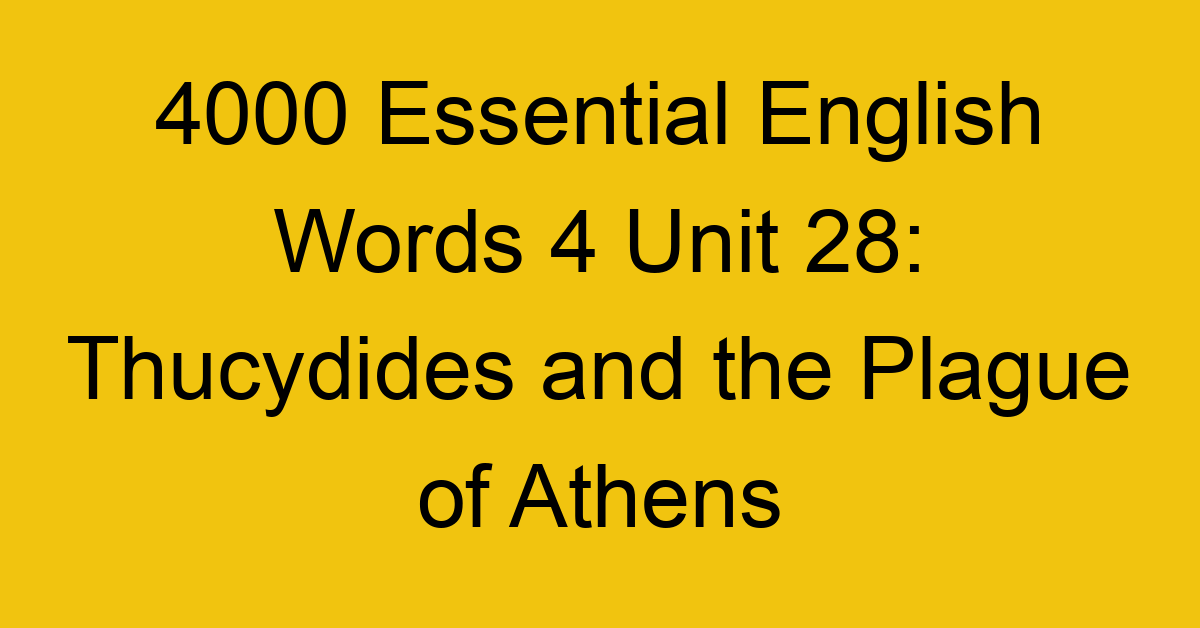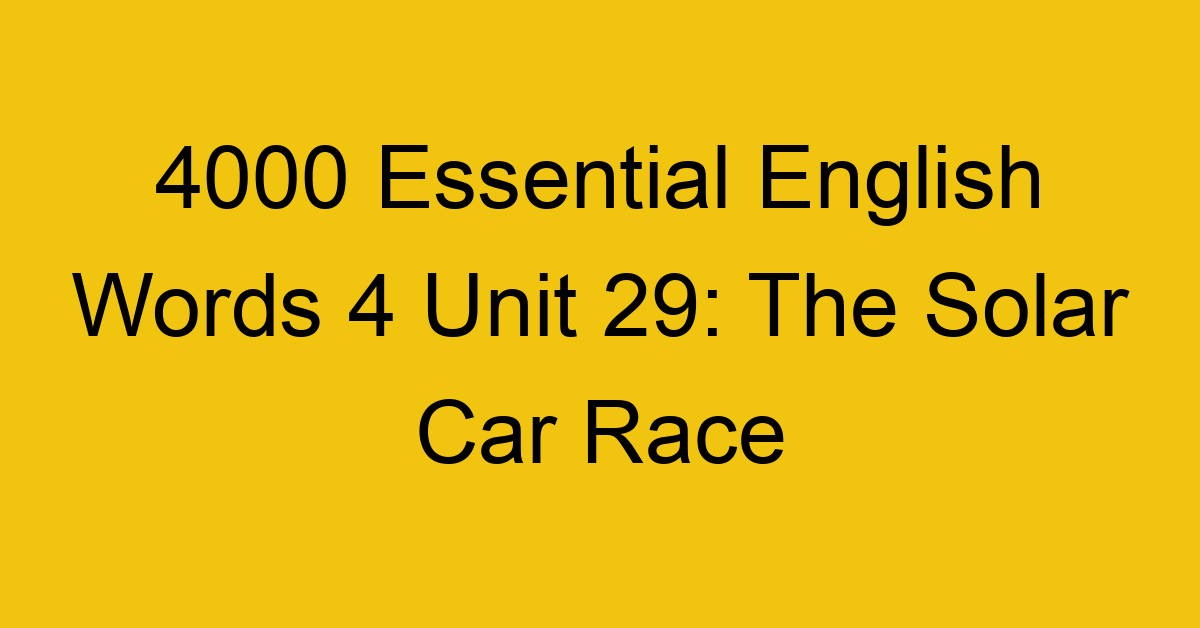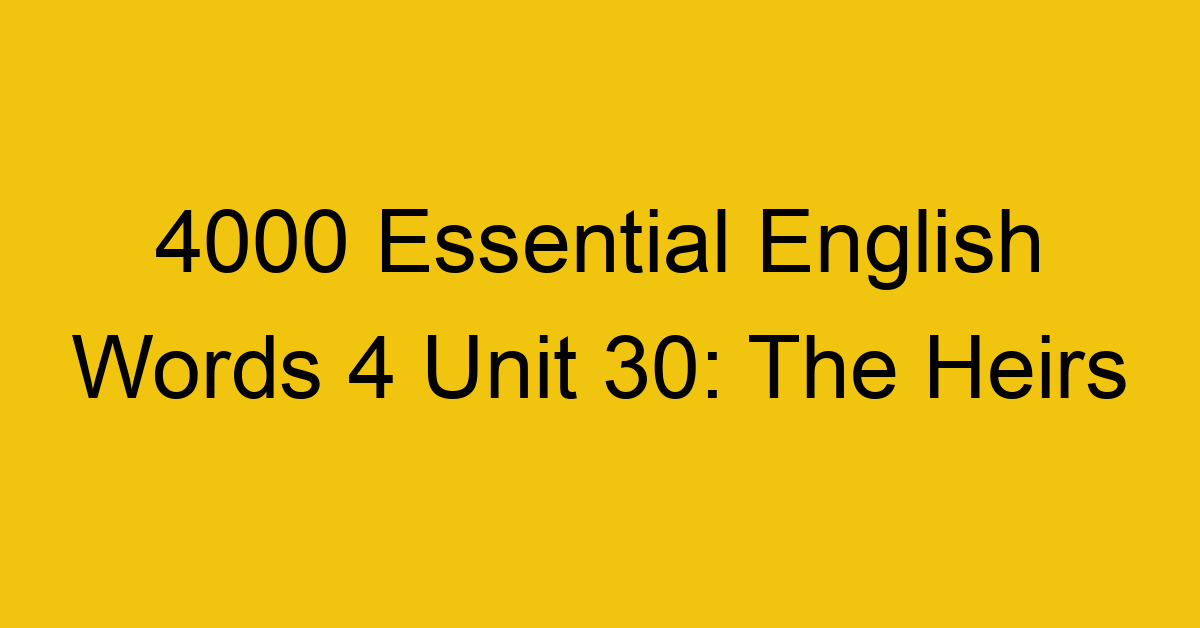4000 Essential English Words 4 Unit 27: A Dying Forest
Word List
- beneficial [benəˈfiʃəl] adj.
If something is beneficial, it is good for you.
→ Drinking milk everyday is beneficial to your bones.
- birthplace [ˈbəːθpleis] n.
A birthplace is a place where a person is born or where something started.
→ China is the birthplace of chopsticks.
- capacity [kəˈpæsəti] n.
The capacity of something is the amount of things that can be put in it.
→ The parking lot has reached its full capacity.
- comparative [kəmˈpærətiv] adj.
If something is comparative, it is being judged based on something else.
→ The money that John has is comparative to most other adults.
- comprehensive [ˌkɒmpriˈhensiv] adj.
If something is comprehensive, it has all the details about something else.
→ The teacher gave us a comprehensive review for the exam.
- conserve [kənˈsəːrv] v.
To conserve something is to protect it from being ruined or used completely.
→ The group worked to conserve the beauty of Europe’s national parks.
- crucial [ˈkruːʃəl] adj.
If something is crucial, it is extremely important to another thing.
→ Clean air is crucial to the survival of humans, plants, and animals.
- cumulative [ˈkjuːmjəleitiv] adj.
Cumulative describes an increase by adding one after another.
→ The cumulative snowfall in the area is 50 centimeters per year.
- deposit [diˈpɒzit] v.
To deposit something is to put it into a place or another thing.
→ I deposited the money into my bank account.
- distribute [disˈtribjuːt] v.
To distribute something is to give it to a number of people.
→ The teacher distributed crayons and markers to his students.
- equator [iˈkweitər] n.
The equator is an imaginary line that splits the Earth into north and south.
→ The equator crosses the northern part of South America.
- exotic [igˈzotik] adj.
Exotic describes something unusual because it is from far away.
→ Rebecca tried many exotic foods on her trip to Africa.
- federal [ˈfedərəl] adj.
If something is federal, it comes from the government of a country.
→ Sometimes federal laws are different from state laws.
- formation [fɔːrˈmeiʃən] n.
A formation is the way that something is made.
→ The formation of ice happens when water freezes.
- frequency [ˈfriːkwənsi] n.
The frequency of something is the number of times that it happens.
→ The frequency of rainstorms is very high, especially during the spring.
- objective [əbˈdʒektiv] adj.
An objective is a goal or plan that someone has.
→ My objective this week is to finish my homework by 7:30 every night.
- oxygen [ˈɒksidʒən] n.
Oxygen is a gas that all living things need to breathe.
→ My aunt believes that the oxygen in the country is cleaner than in the city.
- rainforest [ˈreinˌfɔ(:)rist] n.
A rainforest is a forest that is in a place where it rains very often.
→ The rainforest is home to many animals.
- strategy [ˈstrӕtədʒi] n.
A strategy is a plan for how to do something.
→ The team came up with a strategy to win the game.
- wooded [ˈwudid] adj.
If an area is wooded, it is covered with trees.
→ Jim and Ben decided to go hiking in the wooded area by the river.

